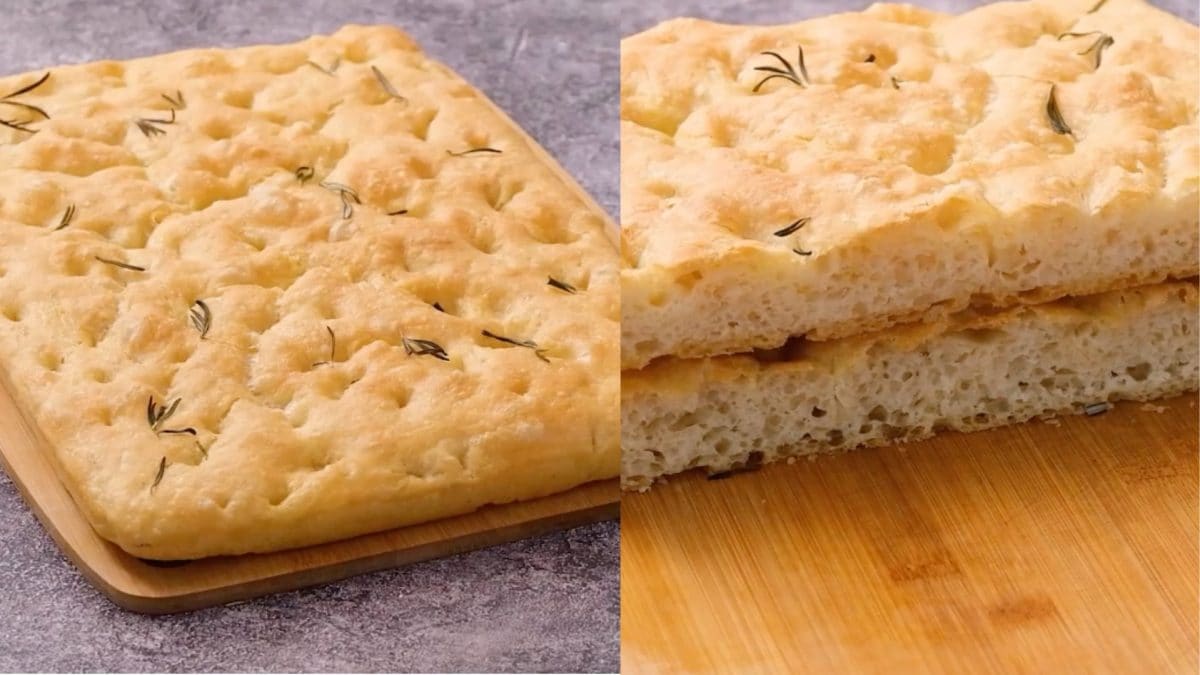
This focaccia is a soft slab of bread that soaks up olive oil, rosemary, and plays perfectly the role of dessert, side dish, or impromptu dip-mop. Forget complicated kneading or intimidating dough tricks, this recipe is easy to make.
Tear it, dip it, stack it, or eat it straight from the pan. Either way, get ready to discover why Italian kitchens have been obsessed with this stuff for centuries.
What is Rosemary Focaccia?
Focaccia is an Italian flatbread traditionally from Liguria, often flavored with olive oil, herbs, and salt. The name stems from Latin panis focacius, which means bread from the hearth, and over the centuries, it became the perfect everyday loaf. Those dimples aren’t just decorative, they trap olive oil, so every bite tastes like a tiny olive-oil party.
Pro Tips for the Best Focaccia
- Use a good extra-virgin olive oil, it makes a big difference when it pools in the dimples.
- Cold fermentation, that is, the 12-hour fridge rest, builds flavor and gives you dough that’s easy to handle.
- Don’t overwork the dough, this recipe asks you to mix with a rubber spatula. The long rest, not heavy kneading, develops texture.
- Be generous with the oil on the pan and in the dimples, that’s where the flavor lives.
Frequently Asked Questions
Why is my focaccia dense?
This can be caused by underproofing, that is, not enough rise time, too little oil, or not enough hydration. This recipe is high-hydration, which helps to create an open, fluffy crumb.
Can I use whole-wheat flour?
Yes, but swap only up to 25–30% whole wheat to start. Whole wheat absorbs more water, and you may need a splash more water. Also, the texture will be a bit denser and nuttier.
How to Store Focaccia
Let completely cool before storing. Wrap in foil or place in an airtight container. At room temperature, it will keep for 1–3 days. Reheat in the oven or toast to refresh the crust.
Ingredients
How to Make Classic Rosemary Focaccia
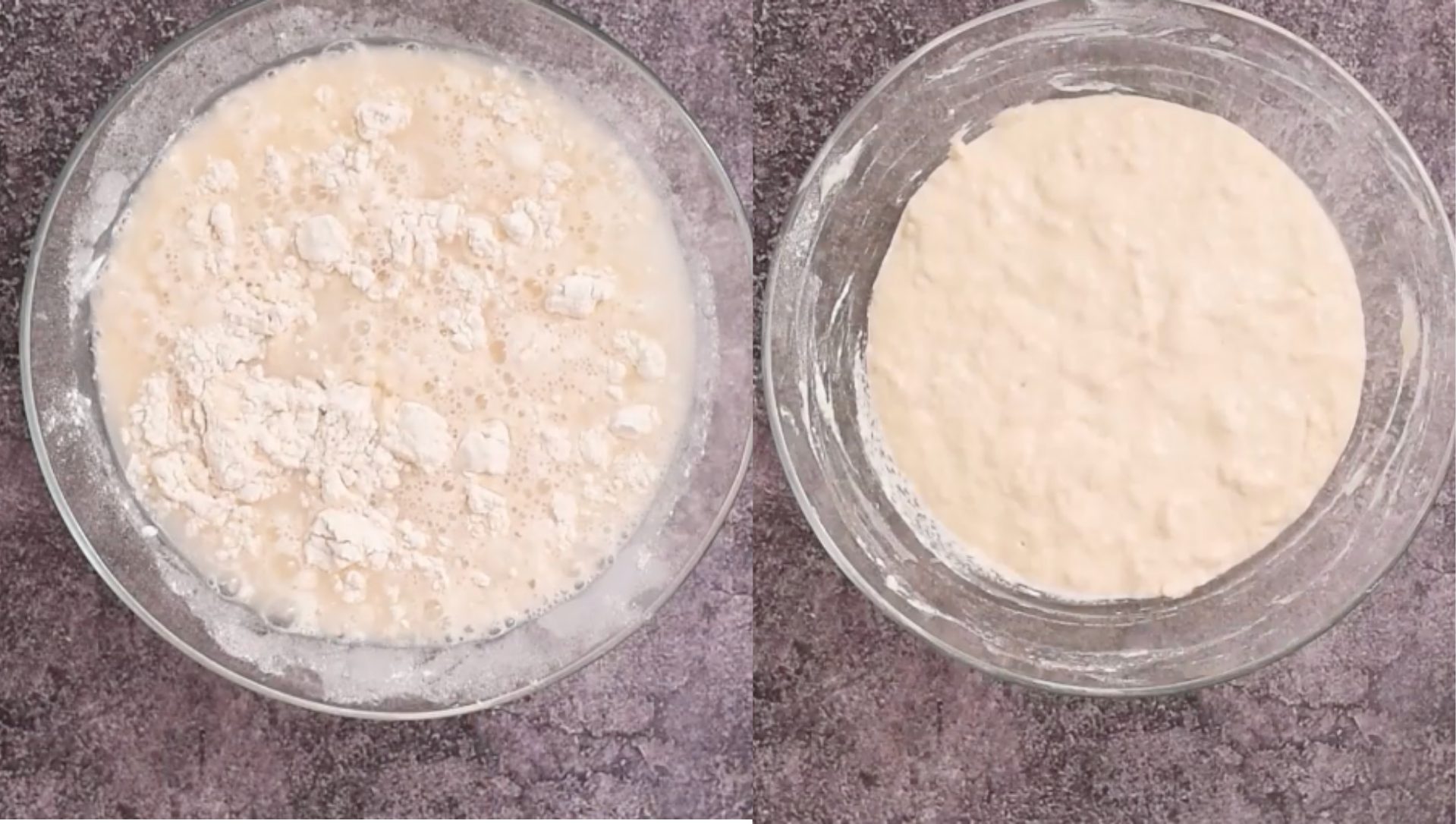;Resize,width=712;)
Mix flour, salt, and yeast. Then, add warm water and mix with a rubber spatula until everything comes together.
Mix flour, salt, and yeast. Then, add warm water and mix with a rubber spatula until everything comes together.
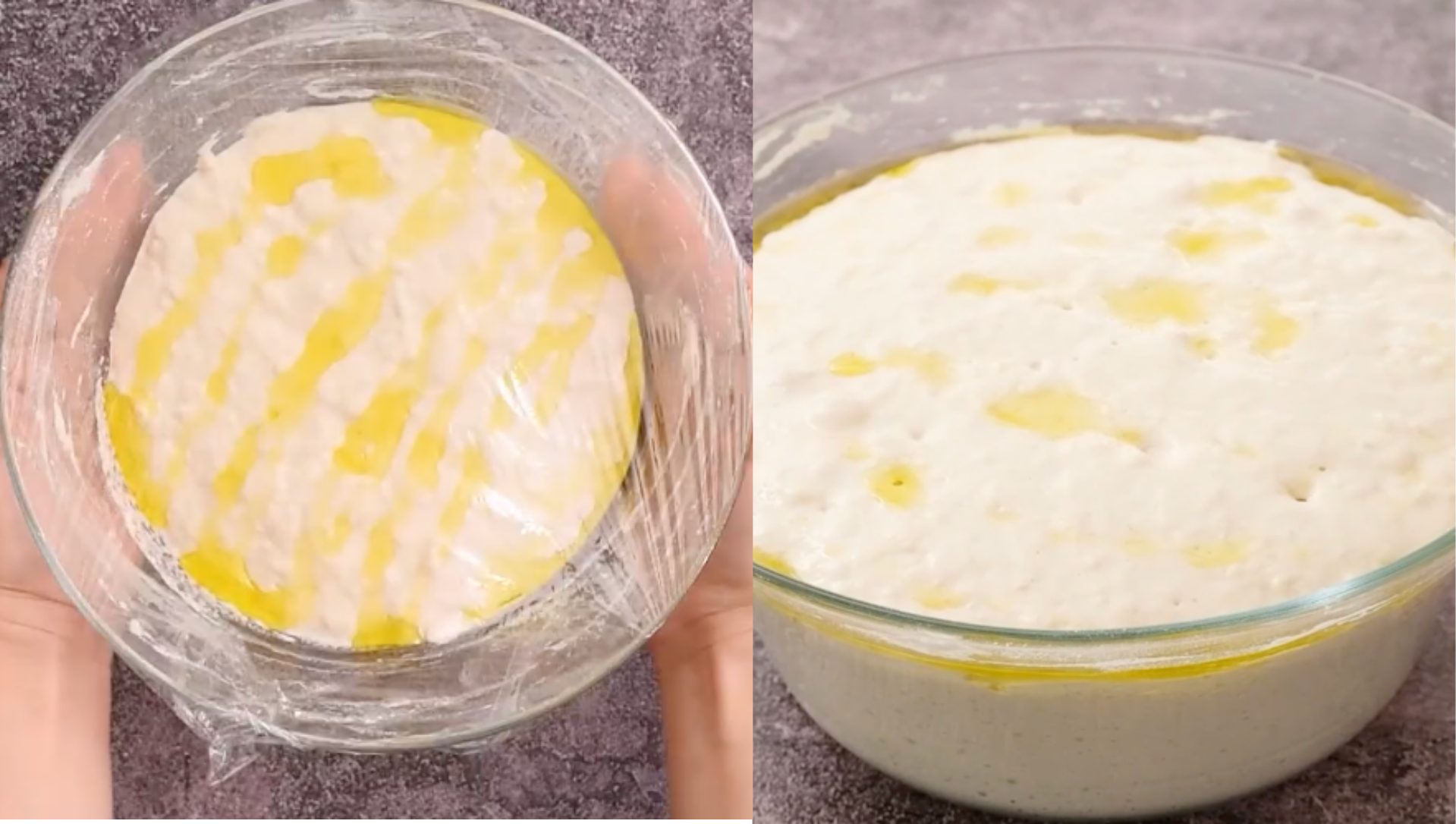;Resize,width=712;)
Form the dough into a rough ball, then roll and press it out until it stretches and completely covers the mold. Let the dough rise at room temperature for about 3 hours and drizzle olive oil.
Pour olive oil over the dough in the bowl, cover, and refrigerate for 12 hours.
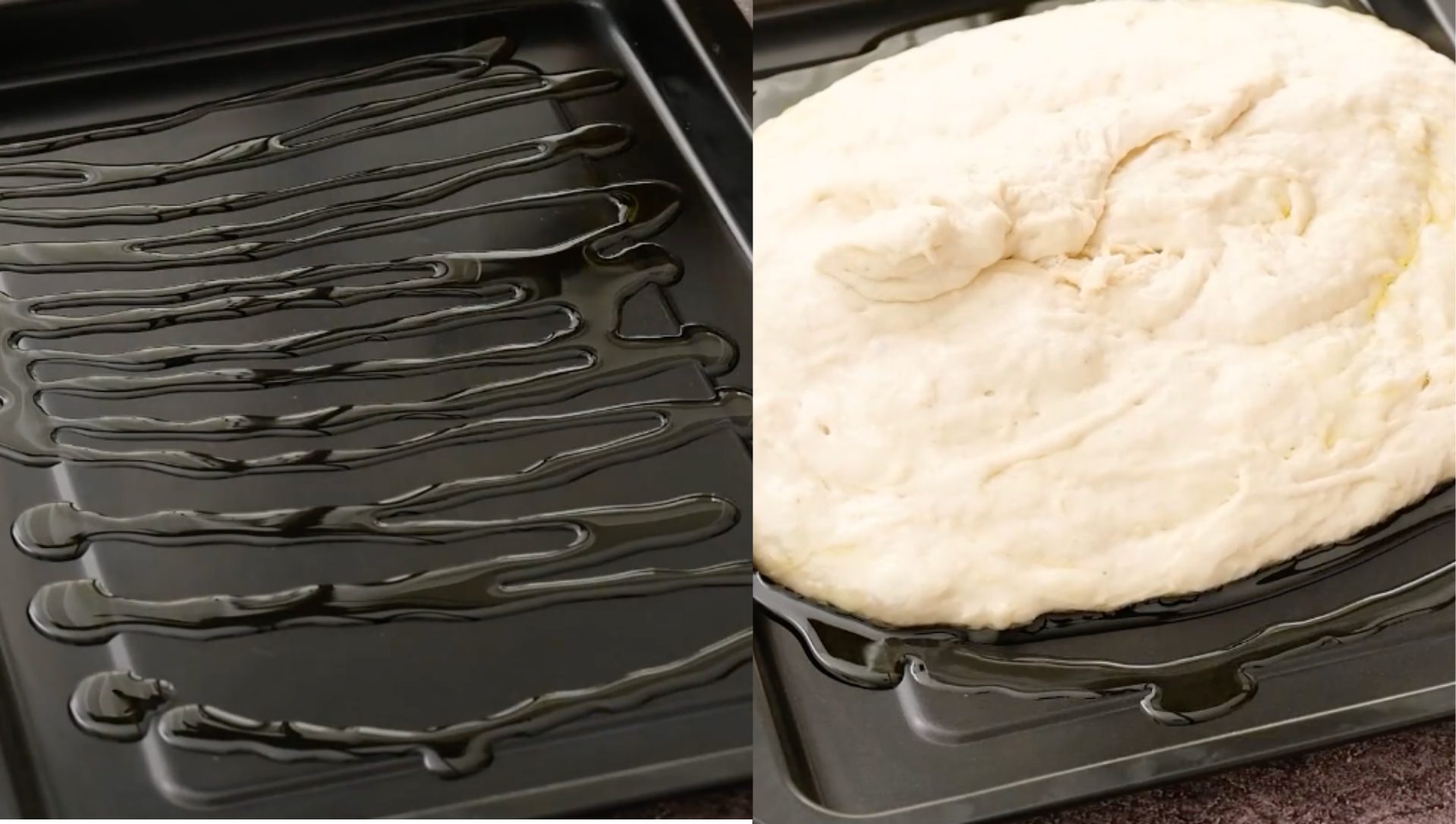;Resize,width=712;)
Bake at 180°C / 350°F for 30 minutes.
After the chill, grease your baking pan with olive oil and tip the dough onto the oiled pan.
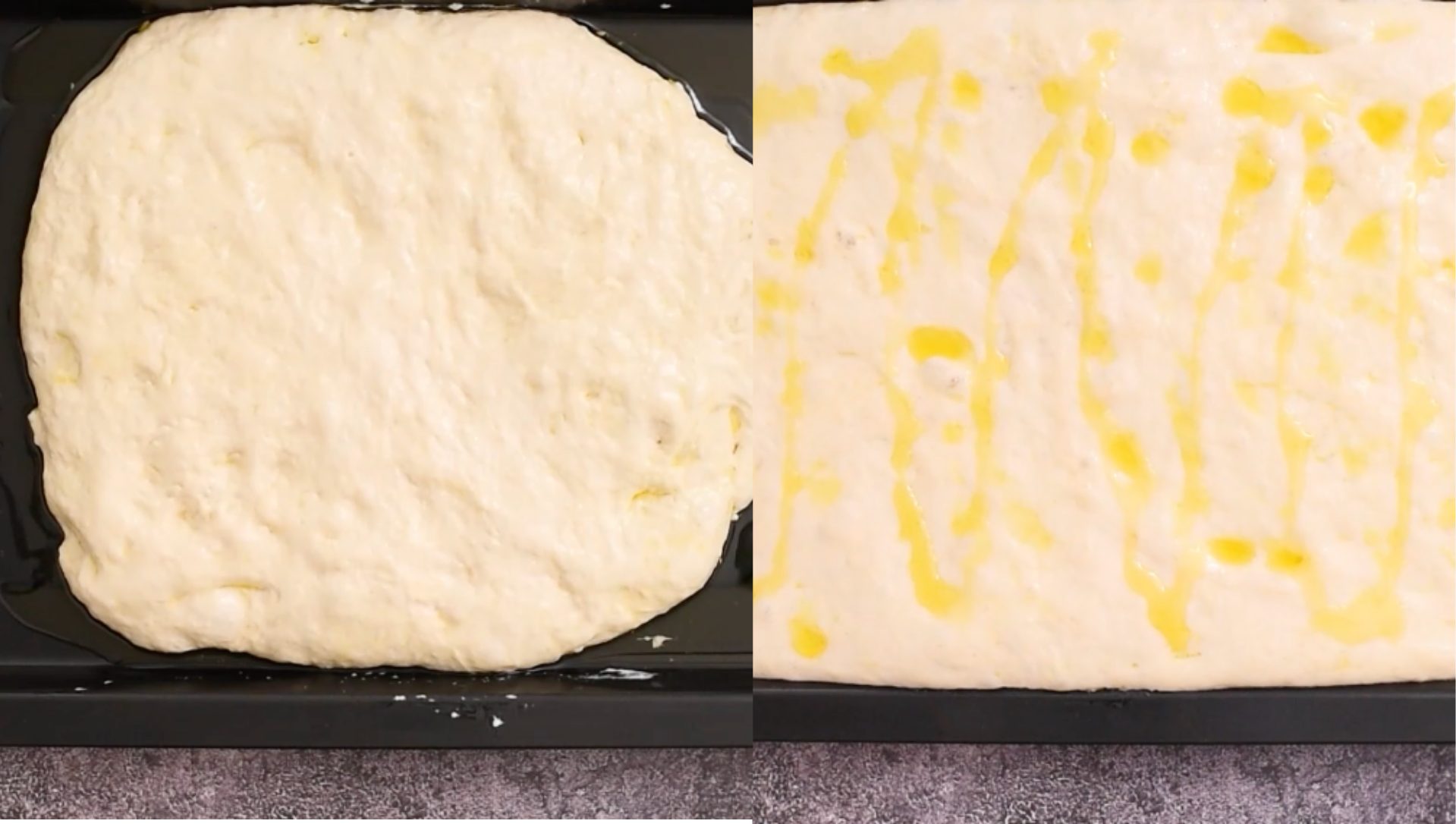;Resize,width=712;)
Form the dough into a rough ball, then roll and press it out until it stretches and completely covers the mold. Let the dough rise at room temperature for about 3 hours and drizzle olive oil.
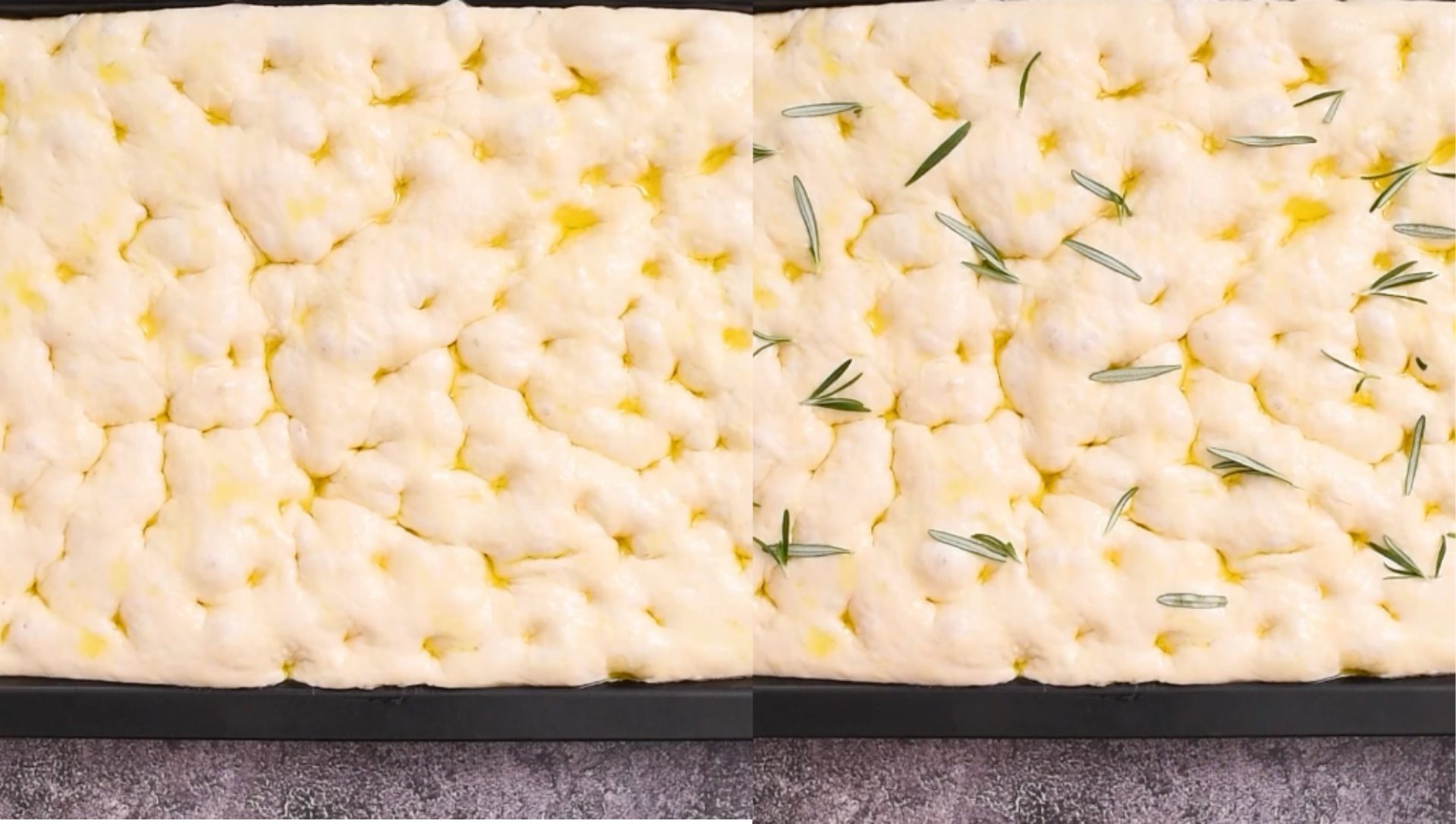;Resize,width=712;)
Use your fingertips to press deep dimples all over the surface and sprinkle the rosemary leaves evenly across the top.
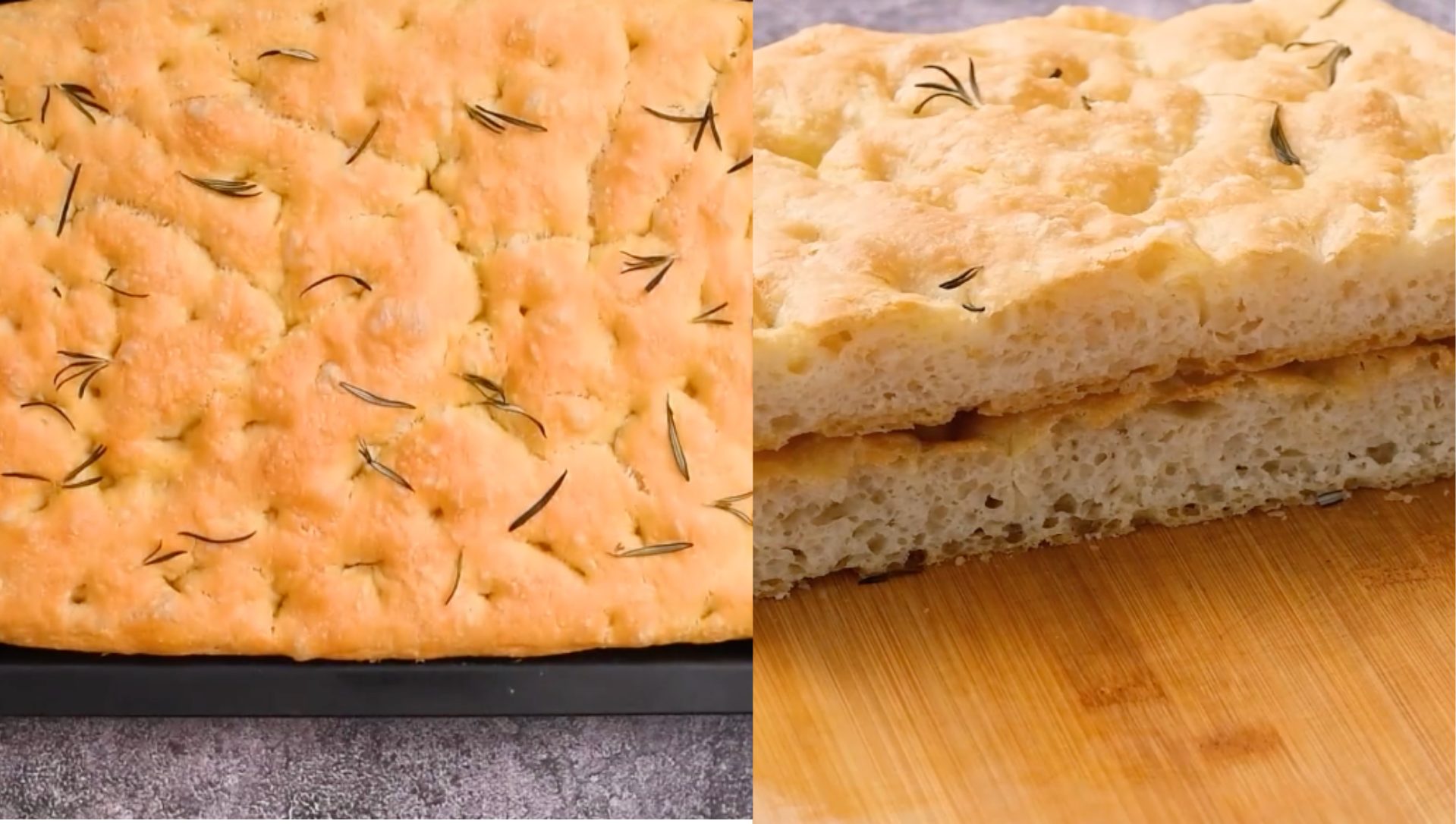;Resize,width=712;)
Bake at 180°C / 350°F for 30 minutes.

;Resize,width=767;)
